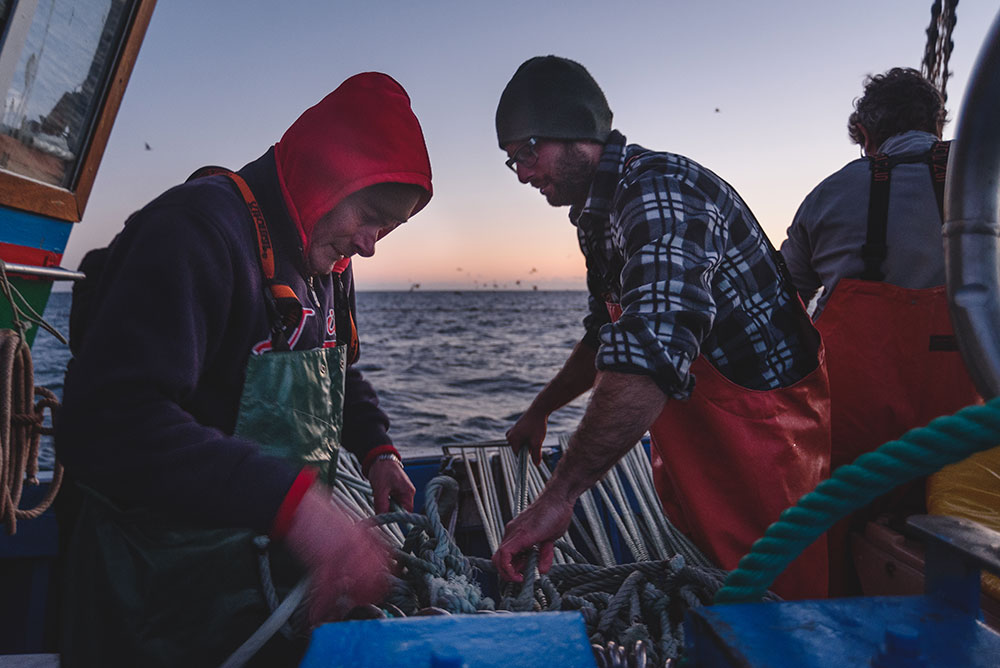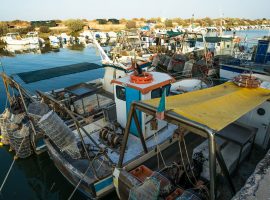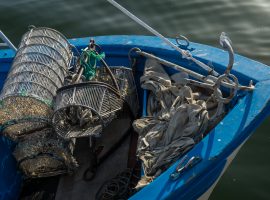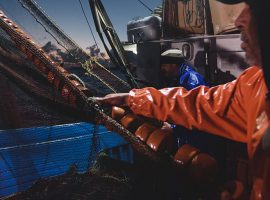With the full implementation of the Landing obligation in force from January 2019, fishers face a huge challenge to adapt. Promoting the adoption of affordable, more selective fishing gears would be a huge step in the right direction.
The landing obligation - a huge change in European fisheries
Introduced under EU legislation as part of the reformed Common Fisheries Policy (CFP, EU Reg. 1983/2013) The Landing Obligation has been described as ‘the biggest change in European fisheries since the introduction of quotas in 1983’.
With up to half a million tonnes of fish estimated to be thrown overboard in Europe each year, the so-called ‘discard ban’ is designed to end the practice by fishers of throwing non-target and undersized species back in the sea. From now on, all catches of regulated species will need to be landed in port.
Its introduction represents a huge change in fishing practices for fishers across Europe, and full implementation and compliance represents a major challenge.
The fishing industry is not prepared to meet this challenge
Despite the incremental introduction of the Landing Obligation over the last four years, the fisheries industry remains woefully underprepared for its implementation, and complying fully will cause real difficulty for fishers both economically and logistically.
The requirement to land all catches of regulated species will have a real financial impact, with increased handling costs both at sea (sorting, storage) and in port.
These costs are not the only issue; dealing with the landings itself will be problematic. As fish that would have been discarded cannot be sold for human consumption, they must be disposed of in other ways - for example as food for pets or aquaculture - but the facilities, logistics and markets for dealing with this are not in place. Fishers could find themselves having to pay for the destruction of these fish, as special waste of animal origin.
In addition, as of January 1st 2019, any fishers not complying with the landing obligations could be considered as acting illegally, with the EU Commission coming under increasing pressure to ensure the rules of the CFP are enforced.
Better selectivity is the best approach - eliminate discards at source
Faced with this situation, we need to find a practical and constructive approach to the implementation of the Landing Obligation that helps fishers to adapt.
Firstly, we should encourage fishers to face reality: ultimately they will have to abide by the landing obligation. Secondly, we should provide the tools, information and funding that helps them do so.
Through our work over the last two years we have seen the willingness of fishers to collaborate and look for solutions to the discard problem. Our experience has been that they were quick to see that greater selectivity - and eliminating the problem of discards and bycatch at source - was the best way to comply with the new rules.

“It’s interesting to see the willingness of fishermen to collaborate in finding solutions to discards as they are now feeling the pressure of the landing obligation”
Sergio Vitale, CNR (MINOUW)
More selective fishing gear can bring many additional benefits to fishers, and is an affordable, practical and effective action for fishers to consider. Information about more selective gears, where and how they can be used, and funding to help fishers switch to using them will be key to a successful implementation of the landing obligation.
Research at the University of York (UK) found that the introduction of a discard ban in Norwegian cod and haddock fisheries in 1987 ultimately encouraged fishers to install more selective fishing gear. Despite some short-term economic costs, the Norwegian and Barents Sea fisheries are today among some of the most prosperous in the world.
What actions should policy makers take?
1. Make selectivity the priority
The best option to eliminate discards is to avoid unwanted catches in the first place, by increasing the selectivity of fishing gears. Additionally, when unwanted catches do occur, the survival rates of the discarded fish can be improved by adapting techniques.
2. Provide funding
The more selective fishing gears successfully tested by MINOUW are inexpensive, and the use of European Maritime Fishery Funds (EMFF) could help scale up the adoption of more selective gears at regional scale, e.g. in the Mediterranean.
For more details visit our policy recommendation page.
Additional information
https://thefishsite.com/articles/europes-smallscale-fisheries-and-the-landing-obligation
https://www.seafoodsource.com/features/will-the-landing-obligation-change-eu-fisheries
https://gearingup.eu/resources/
http://theconversation.com/discard-ban-can-benefit-fish-and-fishers-but-sustainability-must-come-first-26769
https://www.slu.se/en/departments/aquatic-resources1/selective-fishing/







2 Comments